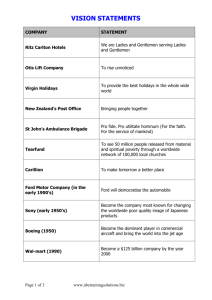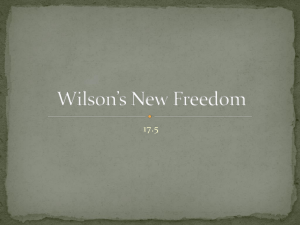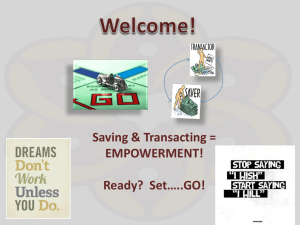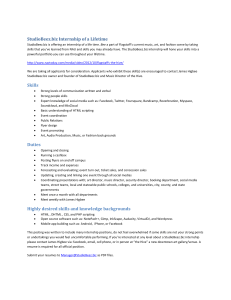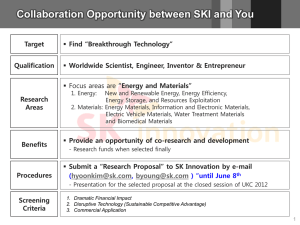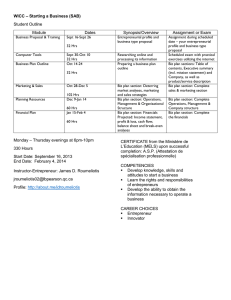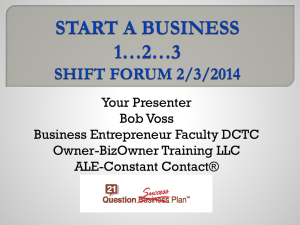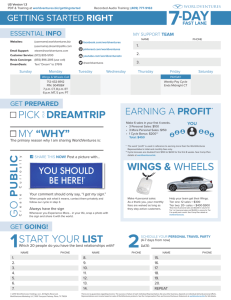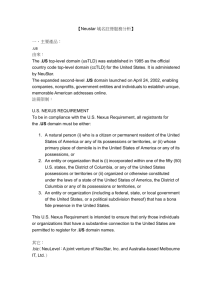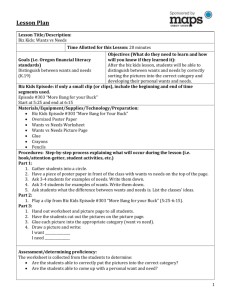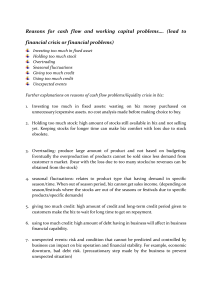Developing a Business Architecture Strategy
advertisement
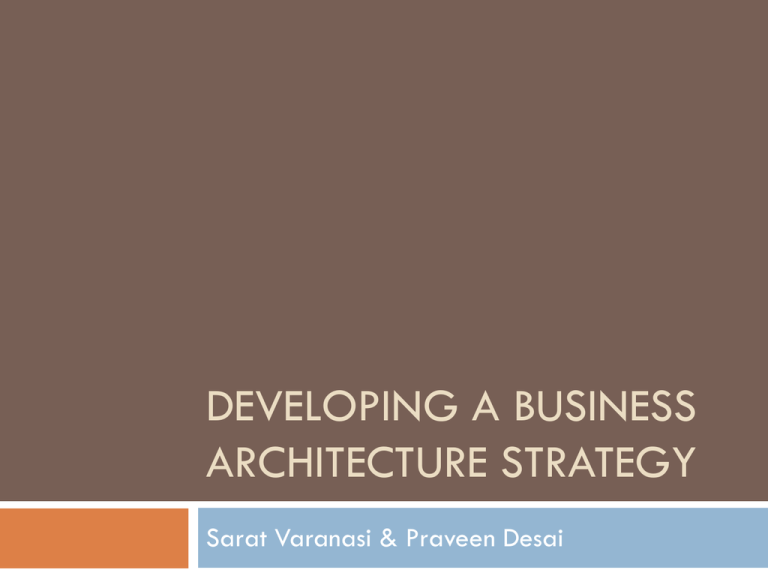
DEVELOPING A BUSINESS ARCHITECTURE STRATEGY Sarat Varanasi & Praveen Desai Defining Biz Architecture Teams 2 Business Architecture Background BA Benefits and the need BA Framework Business Architecture/IT alignment Business Architecture Team formation & Governance Background & Primary Objectives 3 Illustrating how the business works Helps Executives reorganize and clarify capabilities Identify gaps in the organization and potential areas for new service offerings Identifying Top end –to – end business processes (quote to cash, Hire to retire etc) Pre-requisite for Business Process Management Prioritize Process Improvements Identify Opportunities for co-operation and breaking silos High level view of capabilities Determine Internal provision vs Outsourcing of capabilities Mapping business capabilities to business systems to identify inconsistencies and resolve gaps Establishing metrics to measure performance of business Potentially help establish compensation and bonus structure Business Architecture Basics Simplify • Deliver Business Value / Continuous Improvement • Define Guiding Principles (ie. Minimalist Design) Standardize • Adopt Existing Standards • Communicate Methodologies • Business Change Rigor Modularize • Define Once Use Many • Process-Centric Management Integrate • Enable Vision / Strategy • Know Business End-to-End • Know Technology Enablers Source – Darryl Sabo– Developing a Biz Arch Foundation Benefits of Business Architecutre 5 Focus on the value to the organization and customer Identify Synergies in Processes Eliminate duplications and reduce manual interventions by highlighting steps in process Consolidate and standardize operations and technology staff across Business Units Support other architecture domains Analyze Key Value Chains (functions and services yielding economic value) Reduce risk and improve efficiency in process and technology Basis for other domains like Technology, Enterprise and application architectures Enabling Organizational change Help identify impact of major process/ system changes and enabling organizational change Measure the impact of current processes and identify opportunities for new services/offerings Source – SOA Consortium – Biz Arch: The missing link between EA and Biz strategy 4 Quadrant Framework for Business Architecture 6 Effective Process Modeling Develop Requirements Mapping Maturity Align Process owners with IT teams Encourage methodologies for quick and continuous monitoring of business process activities Enable & Measure Enable Organizational Change Build competitive advantage through IT alignment and business requirements Measure Effectiveness of projects through process impact Business Architecture Efficient Business Processes Rationalize current systems that business interacts with Develop common interface to simplify system interaction Develop and evaluate principles for integration with BI and MDM framework Innovate & Virtualize Explore avenues for technological and process innovation Explore opportunities to virtualize/outsource Identify areas for process improvement Business Architecture and IT 7 Business Architecture as IT Input Business Architecture Technology Enterprise Architecture Architecture Source – SOA Consortium – Biz Arch: The missing link between EA and Biz strategy Team Formation, Tools & Governance 8 Team - skills Business Generalists and enterprise architects with solid business understanding Business Process owners with analytical and system knowledge Governance Ensure business design changes are updated in the repository frequently Ensure cross-functional business and IT teams representation in SC Follow CMMI model for building maturity in the processes Tools BPM tools are a good starting point for BA teams Development of searchable and easy to understand process artifacts essential
